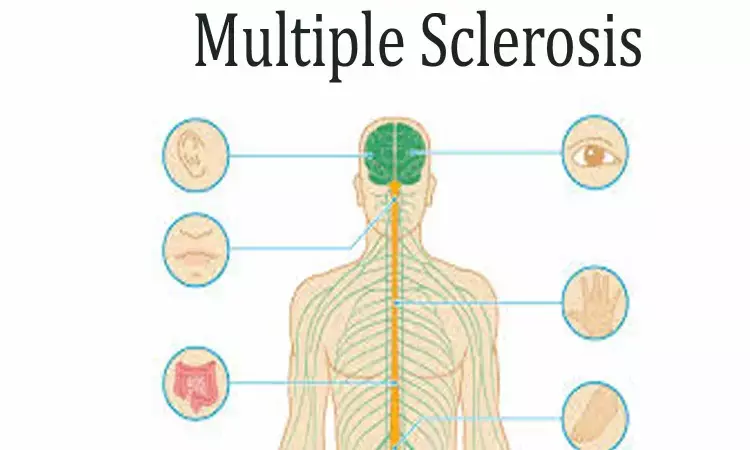- Home
- Medical news & Guidelines
- Anesthesiology
- Cardiology and CTVS
- Critical Care
- Dentistry
- Dermatology
- Diabetes and Endocrinology
- ENT
- Gastroenterology
- Medicine
- Nephrology
- Neurology
- Obstretics-Gynaecology
- Oncology
- Ophthalmology
- Orthopaedics
- Pediatrics-Neonatology
- Psychiatry
- Pulmonology
- Radiology
- Surgery
- Urology
- Laboratory Medicine
- Diet
- Nursing
- Paramedical
- Physiotherapy
- Health news
- Fact Check
- Bone Health Fact Check
- Brain Health Fact Check
- Cancer Related Fact Check
- Child Care Fact Check
- Dental and oral health fact check
- Diabetes and metabolic health fact check
- Diet and Nutrition Fact Check
- Eye and ENT Care Fact Check
- Fitness fact check
- Gut health fact check
- Heart health fact check
- Kidney health fact check
- Medical education fact check
- Men's health fact check
- Respiratory fact check
- Skin and hair care fact check
- Vaccine and Immunization fact check
- Women's health fact check
- AYUSH
- State News
- Andaman and Nicobar Islands
- Andhra Pradesh
- Arunachal Pradesh
- Assam
- Bihar
- Chandigarh
- Chattisgarh
- Dadra and Nagar Haveli
- Daman and Diu
- Delhi
- Goa
- Gujarat
- Haryana
- Himachal Pradesh
- Jammu & Kashmir
- Jharkhand
- Karnataka
- Kerala
- Ladakh
- Lakshadweep
- Madhya Pradesh
- Maharashtra
- Manipur
- Meghalaya
- Mizoram
- Nagaland
- Odisha
- Puducherry
- Punjab
- Rajasthan
- Sikkim
- Tamil Nadu
- Telangana
- Tripura
- Uttar Pradesh
- Uttrakhand
- West Bengal
- Medical Education
- Industry
Teriflunomide may temper lesion growth in children with multiple sclerosis: Lancet

There are few treatment options for children with multiple sclerosis -- a condition in which the immune system attacks the protective covering of nerves in the brain and spinal cord -- and most therapies for the disease have not been tested in children.
An international team of investigators, including researchers at Massachusetts General Hospital (MGH), has conducted a phase 3, randomized, double-blind clinical trial to examine the safety and efficacy of teriflunomide, an oral immunomodulatory drug approved in more than 80 countries for the treatment of adults with relapsing forms of multiple sclerosis. Based on the trial's results, which appear in Lancet Neurology, teriflunomide was recently approved by the European Commission for children aged 10-17 years with a diagnosis of relapsing remitting multiple sclerosis.
In the trial, called TERIKIDS, 109 children were randomized to receive teriflunomide and 57 were randomized to receive placebo for up to 96 weeks (nearly two years). Early entry in an open-label extension phase (where patients were guaranteed to receive teriflunomide) was possible before the end of the double-blind period for patients who experienced a relapse or demonstrated high disease activity on MRI imaging tests.Importantly, more patients in the placebo group entered the open-label extension phase (because of high MRI activity) than anticipated, with 26% of patients switching from placebo to teriflunomide before 96 weeks.
After 96 weeks, there was no difference in time to first clinical relapse of multiple sclerosis with teriflunomide compared with placebo. Teriflunomide was well tolerated -- serious adverse events occurred in 11% of patients in the teriflunomide group and 11% of patients in the placebo group. Nasal inflammation, upper-respiratory-tract infection, hair loss, tingling sensations, abdominal pain, and increased blood creatine phosphokinase (a marker of muscle damage) were more frequent with teriflunomide than with placebo.
"The trial did not meet its primary endpoint -- delaying time to the next clinical relapse -- possibly because of more frequent switches to the open-label arm due to high MRI activity. However, the study did meet several key secondary endpoints related to teriflunomide's ability to reduce the number of new or enlarged lesions that are detected through MRI, suggesting that the medication might have beneficial effects in children with relapsing forms of multiple sclerosis," says lead author Tanuja Chitnis, MD, director of the MGB Pediatric Multiple Sclerosis Center at MGH.
Chitnis notes that an ongoing open-label treatment extension study is continuing to evaluate the long-term effects of teriflunomide in young patients.
Chitnis is also director of the Translational Neuroimmunology Research Center at Brigham and Women's Hospital and a professor of neurology at Harvard Medical School.
This work was supported by Sanofi.
https://www.thelancet.com/journals/laneur/article/PIIS1474-4422(21)00364-1/fulltext
Hina Zahid Joined Medical Dialogue in 2017 with a passion to work as a Reporter. She coordinates with various national and international journals and association and covers all the stories related to Medical guidelines, Medical Journals, rare medical surgeries as well as all the updates in the medical field. Email: editorial@medicaldialogues.in. Contact no. 011-43720751
Dr Kamal Kant Kohli-MBBS, DTCD- a chest specialist with more than 30 years of practice and a flair for writing clinical articles, Dr Kamal Kant Kohli joined Medical Dialogues as a Chief Editor of Medical News. Besides writing articles, as an editor, he proofreads and verifies all the medical content published on Medical Dialogues including those coming from journals, studies,medical conferences,guidelines etc. Email: drkohli@medicaldialogues.in. Contact no. 011-43720751


